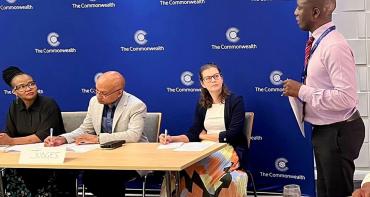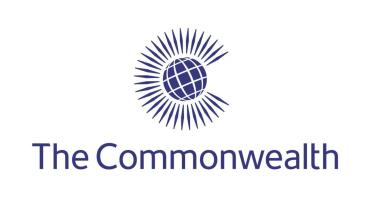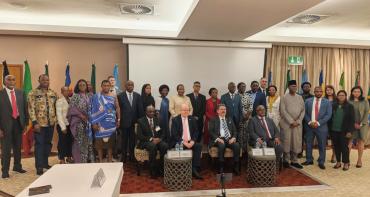A Commonwealth Observer Group, appointed by Commonwealth Secretary General Patricia Scotland, is on the ground in Papua New Guinea to observe the conduct of a general election.

Port Moresby, 20 June 2017
A Commonwealth Observer Group, appointed by Commonwealth Secretary General Patricia Scotland, is on the ground in Papua New Guinea to observe the conduct of a general election scheduled to start this weekend (24 June). It will also meet with some of the country’s key stakeholders in the lead up to the election.
The 12-member Group is chaired by Sir Anand Satyanand, former Governor General of New Zealand, and former Chair of the Commonwealth Foundation.
“Our terms of reference are to observe the electoral process and consider the factors that could impinge on the credibility of the electoral process as a whole. This includes observing the re-election environment, polling day, the count, and post-election period,” Sir Anand stated upon arrival.
The Commonwealth team joins 800 election observers, half of them national observers.
The poll takes place this weekend (24 June), with 3,332 candidates vying for 111 seats in Parliament. There are 165 female candidates.
Voting will take place over two weeks until 4 July. This longer time-frame reflects logistics challenges given the difficult terrain of the largest Pacific Island country and limited resources of a young democracy, independent since 1975.
No single party has ever governed on its own – every government is a coalition. This year 45 political parties are contesting, but they account for just one third of the candidates. Most people running for office are independent.
Election officials face a daunting logistics exercise. The capital, Port Moresby, is not linked by road to many centres on the mainland. Plus, there are hundreds of islands where voting must take place.
With more than 10,000 polling stations and limited road links, election officials also use aircraft, helicopters and boats to move material and personnel across the country in stages.
PNG’s population of about eight million (five million are voters) is mainly rural. Literacy is just over 60 per cent. There are more than 800 languages (12% of the world’s total) so most people communicate through the three official languages of Tok Pisin, English and Hiri Motu.
Most voters will receive information face-to-face, or by radio, which is the only national medium. The few newspapers and TV stations are mainly confined to the capital and the few urban centres where electricity and other services are accessible.
Social media is small but growing. Internet users are estimated at one in ten people, mostly in the urban centres.

Election posters in the the second largest city of Lae.



